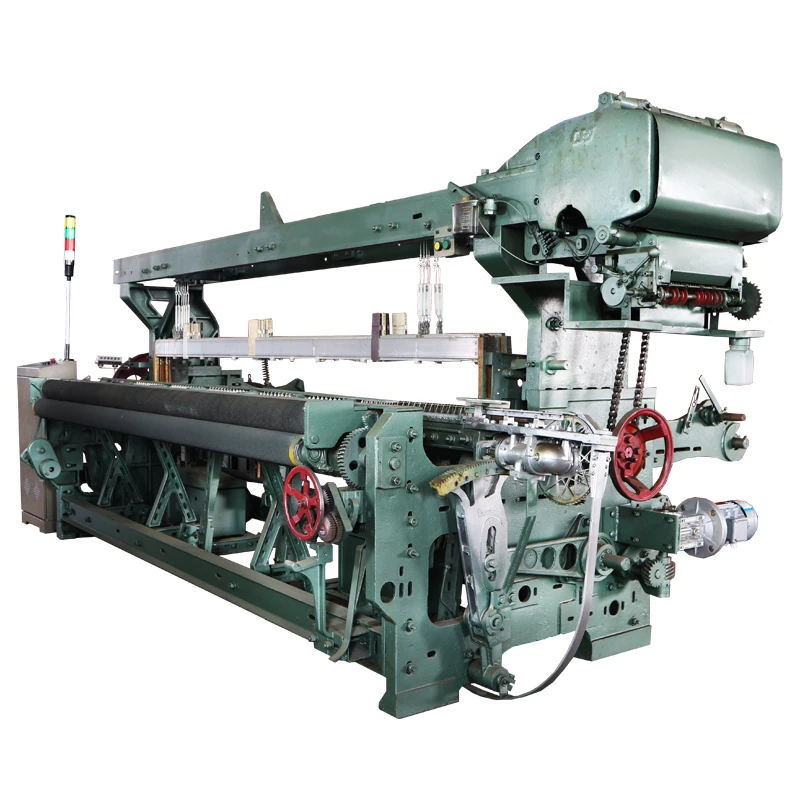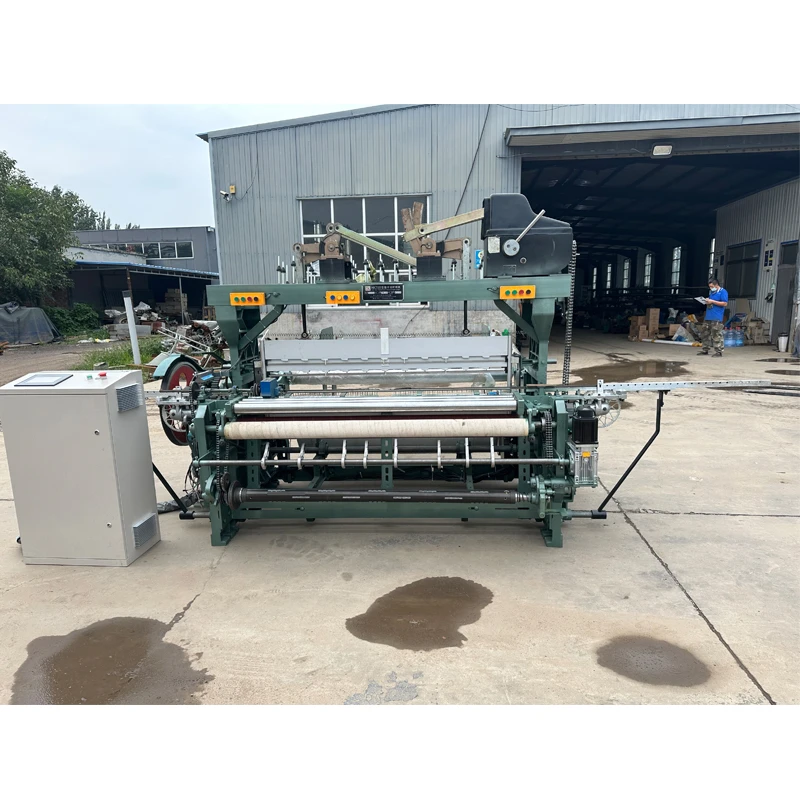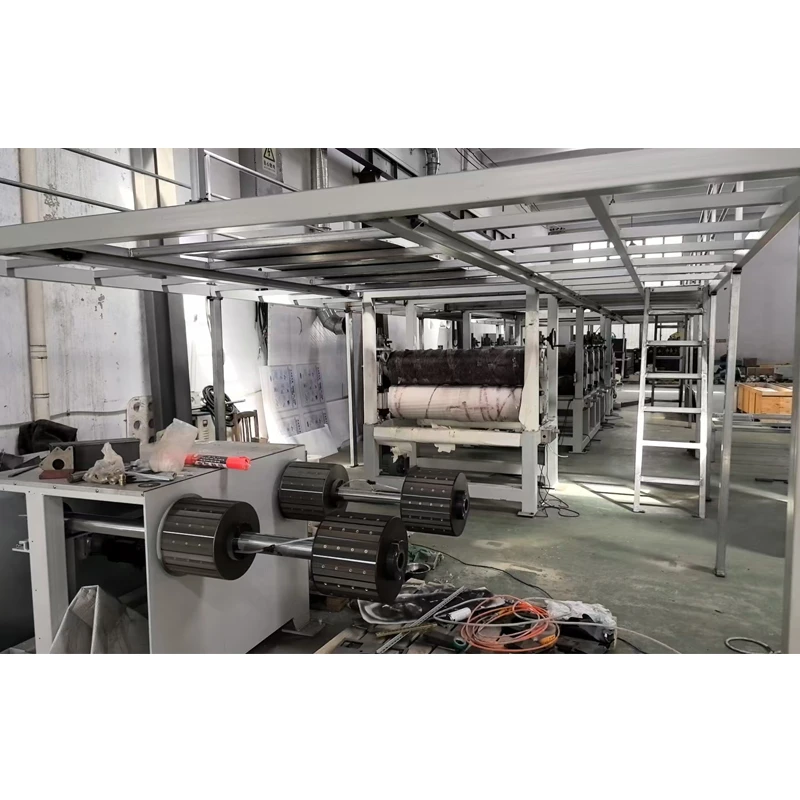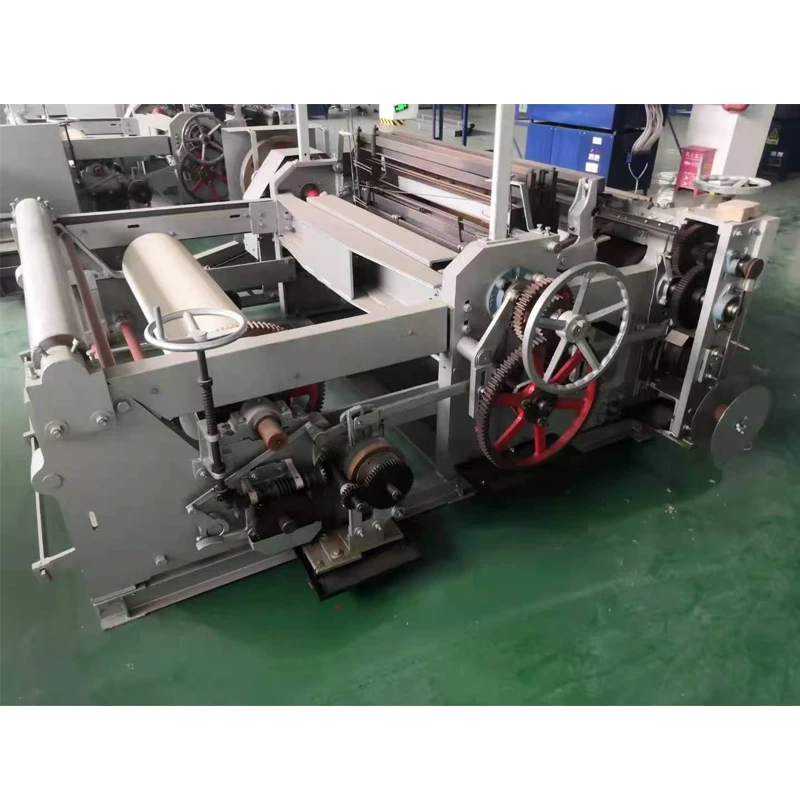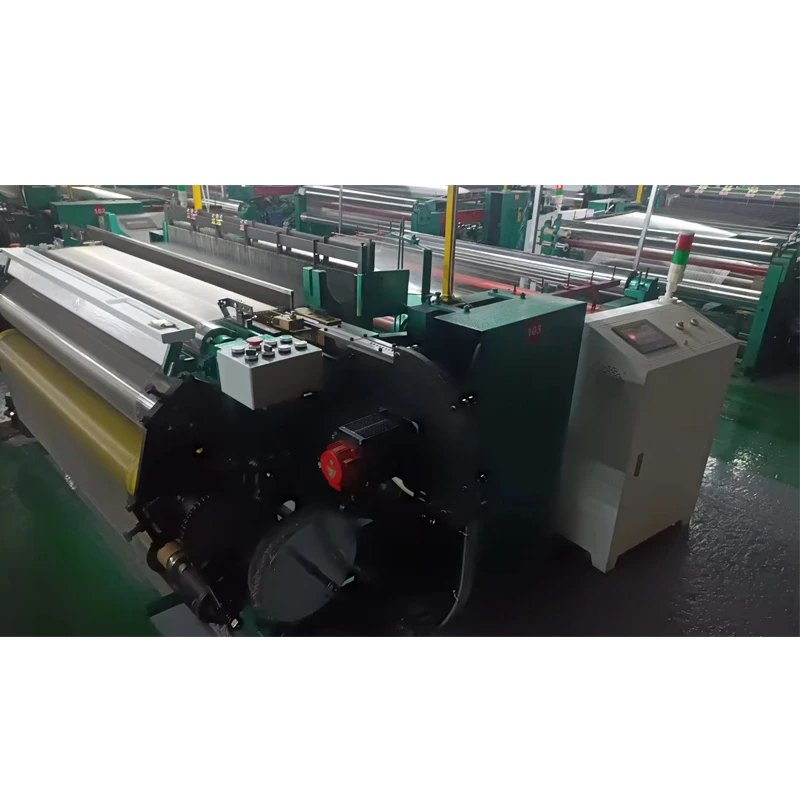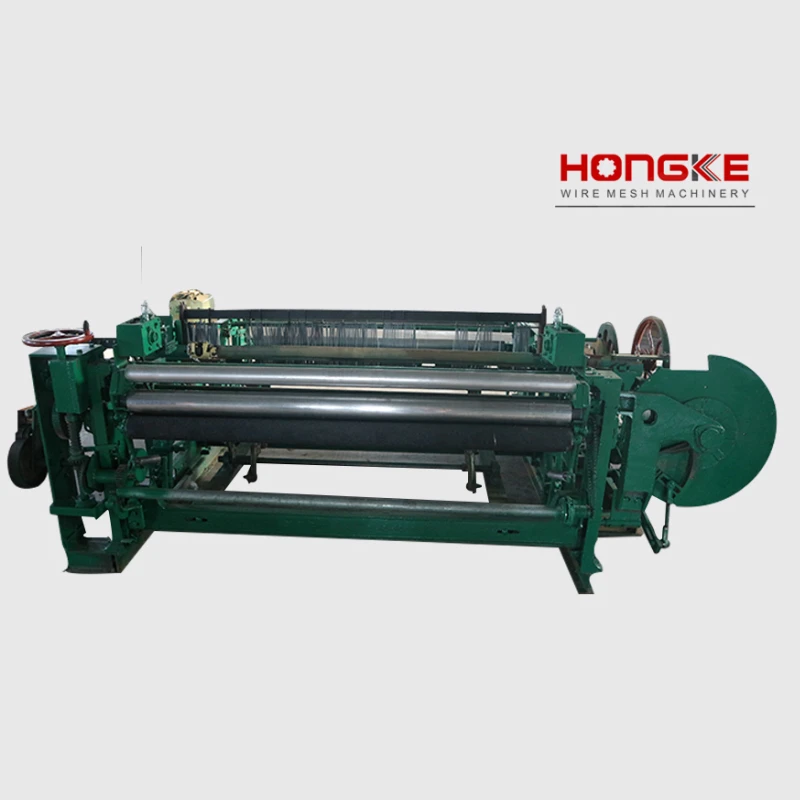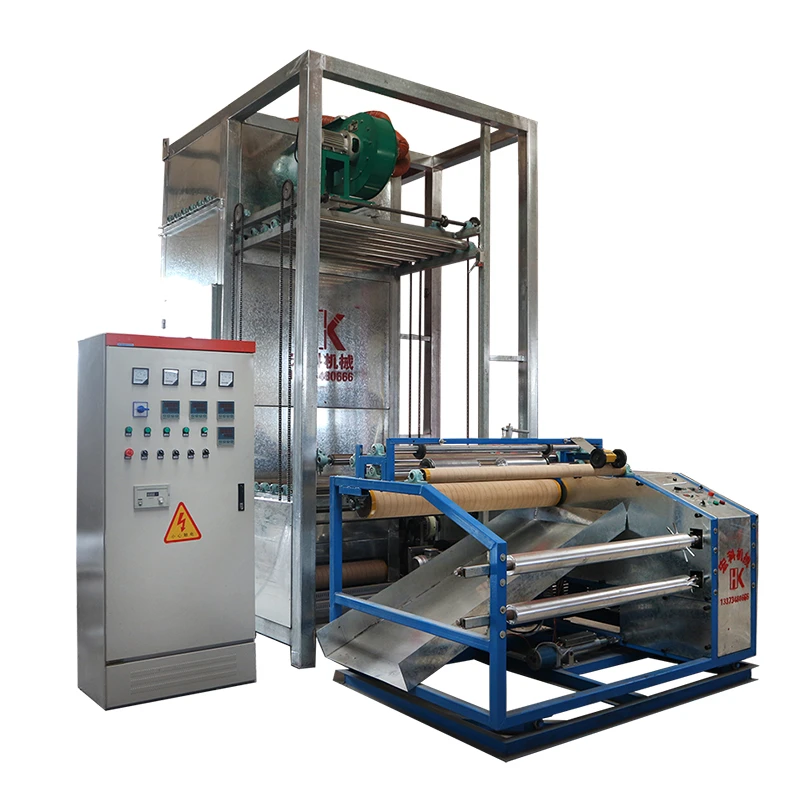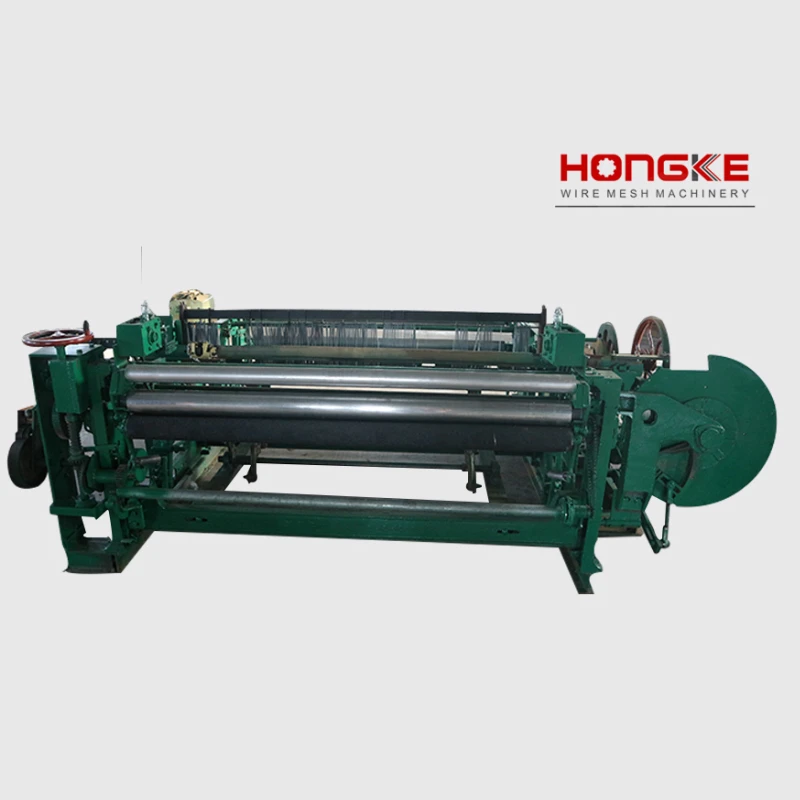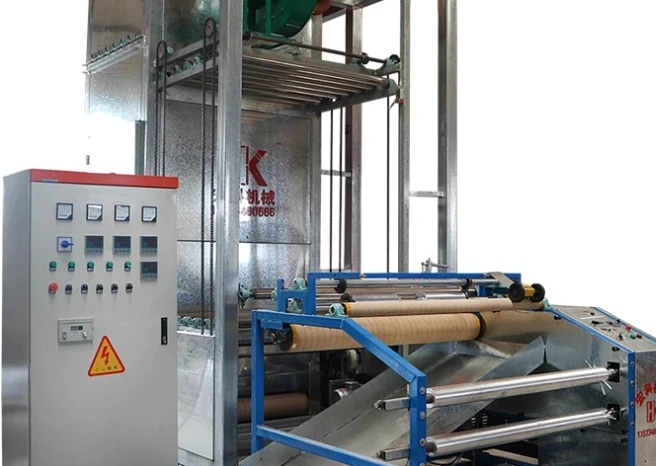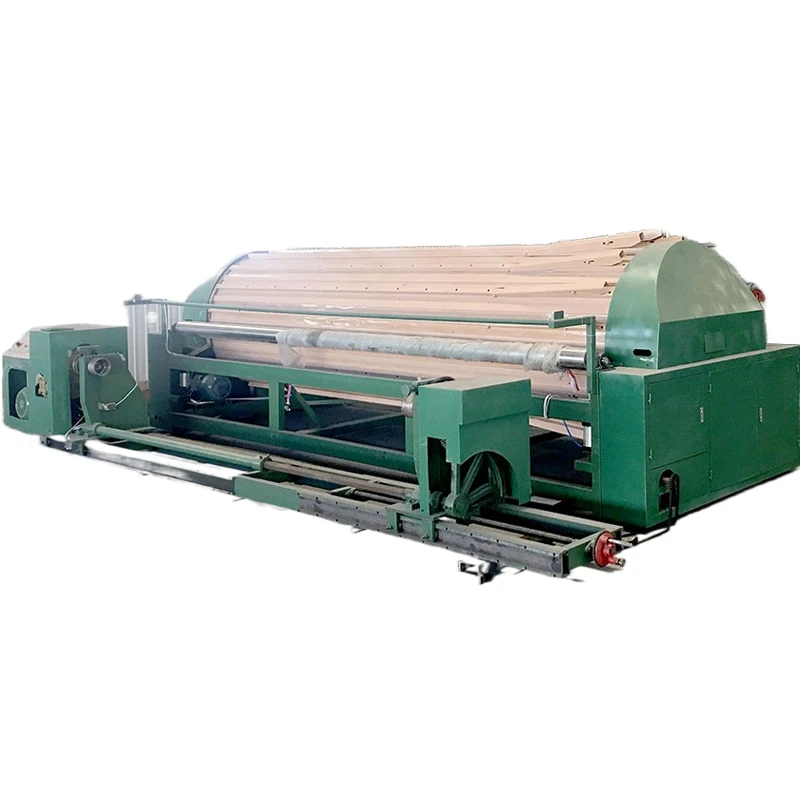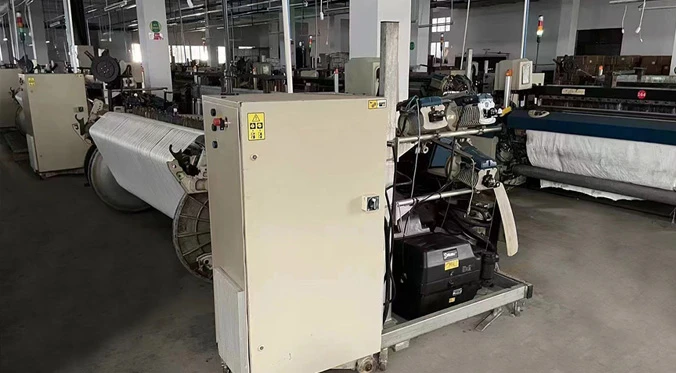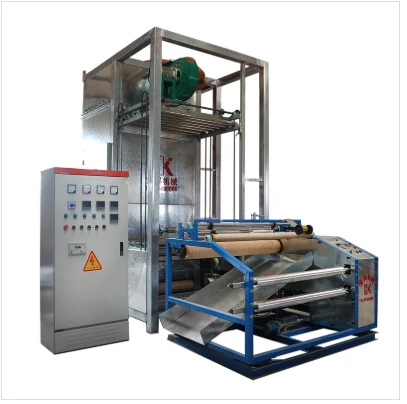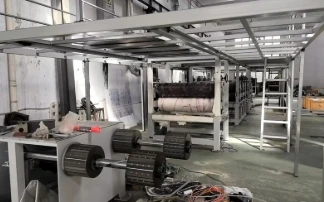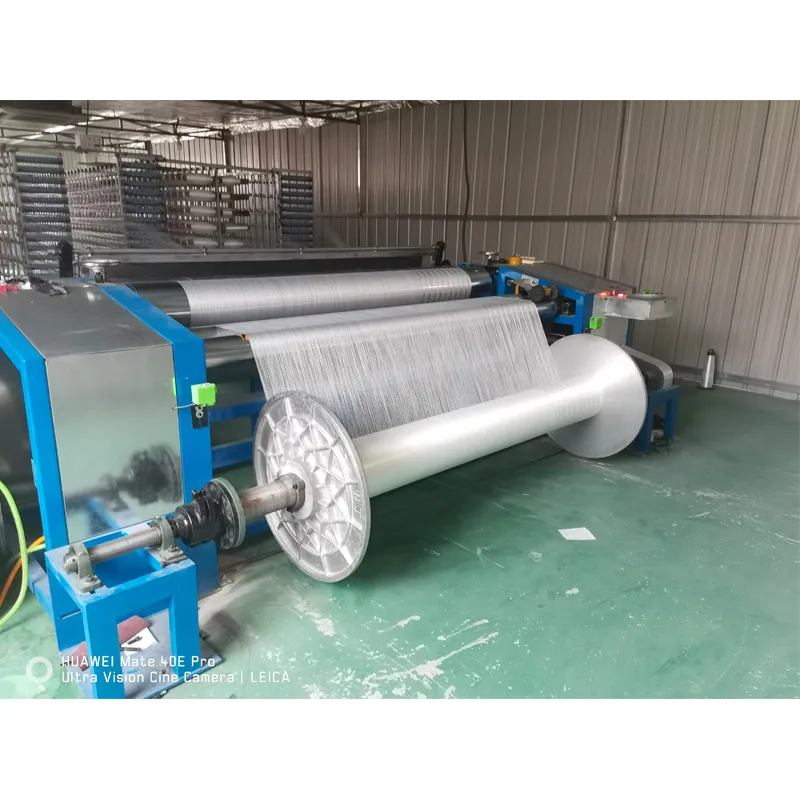
The Evolution of Fiberglass Weaving: Mastering Industrial Textile Production
In the rapidly evolving landscape of industrial textiles, the demand for advanced materials like fiberglass has surged, driven by its unparalleled properties in fire resistance, thermal insulation, and structural reinforcement. At the forefront of this industrial revolution are sophisticated fiberglass mesh weaving machines, which are pivotal in transforming raw glass fibers into high-performance woven fabrics essential for diverse applications, from construction and automotive to aerospace and filtration. The industry is currently witnessing a significant shift towards automation and precision, with an increasing focus on achieving higher production speeds and greater versatility in weave patterns and material specifications. This trend is not merely about increasing output; it is fundamentally about enhancing the quality, consistency, and functional characteristics of the final fiberglass product, thereby meeting the stringent demands of modern engineering and safety standards. The integration of intelligent control systems, advanced material handling, and energy-efficient designs represents the cutting edge of modern spinning and weaving machines, ensuring that manufacturers can operate with optimal efficiency and reduced environmental impact. The development of industrial weaving machine technologies specifically tailored for the unique properties of fiberglass, such as its inherent brittleness and abrasive nature, has been crucial in overcoming traditional production challenges, enabling the creation of fabrics with superior tensile strength, dimensional stability, and long-term durability, positioning these machines as indispensable assets in the global manufacturing sector.
The technological progression in weaving machinery has profoundly impacted the capabilities of fiberglass machine manufacturers. These advancements allow for the precise control of yarn tension, weft insertion, and beat-up force, critical parameters for producing uniform and defect-free fiberglass fabrics. Furthermore, the emphasis on modular designs and adaptable configurations means that a single machine can be optimized for various product specifications, from fine meshes for filtration to heavy-duty cloths for fire protection. This adaptability is key in serving a broad spectrum of industries, each with unique requirements for fiberglass products. The global market for fiberglass is projected to grow significantly, fueled by its increasing adoption in composite materials, lightweight structures, and specialized industrial applications where its fire-retardant and high-temperature resistance properties are invaluable. The evolution of high speed weaving machines, specifically designed for fiberglass, is a direct response to this growing demand, enabling manufacturers to scale production while maintaining exacting quality standards. Investment in these advanced machines is not just an expenditure but a strategic decision that offers a competitive edge, ensuring superior product quality, reduced operational costs through improved efficiency, and the ability to innovate with new fiberglass-based solutions, thereby solidifying a company's position as a leader in the industrial textile market and contributing to the development of safer and more sustainable infrastructure worldwide.
Unveiling the Fiberglass Fireproof Cloth Production Line: Process and Precision
The manufacturing of fiberglass fireproof cloth, a critical component in numerous safety-critical applications, relies on a sophisticated and meticulously controlled production line. The core of this process is the efficient and precise operation of fiberglass mesh weaving machines. This production journey typically begins with the preparation of fiberglass yarn, usually spooled onto bobbins. These high-strength glass fibers, often E-glass or C-glass, are selected for their excellent thermal stability and non-combustible properties. The manufacturing process of the weaving machine itself involves precision engineering, where components are often crafted using advanced CNC machining to ensure extremely tight tolerances. This precision extends to critical elements like the rapier heads, heddle frames, and take-up mechanisms, ensuring optimal performance and longevity. Unlike conventional metal manufacturing which might involve casting or forging for large structural components, the emphasis for these weaving machines is on precision machining and assembly to create a stable, high-speed, and low-vibration platform for weaving. Quality control at this stage includes rigorous dimensional checks, material composition analysis (e.g., verifying alloy strengths for critical moving parts), and functional testing to meet standards such as ISO 9001 for quality management and ANSI standards for machine safety and performance.

Once the machine is set, the actual weaving process commences. Yarns are systematically fed from warper beams and weft feeders into the weaving zone. Modern fiberglass mesh weaving machines utilize shuttleless technology, commonly rapier or air-jet looms, to achieve high weft insertion rates and minimize yarn breakage, which is particularly important for abrasive fiberglass. The precise control over warp tension, shed formation, and weft insertion ensures uniform mesh density and structural integrity, crucial for the fireproof performance of the final cloth. Following the weaving stage, the raw fiberglass cloth undergoes a series of crucial post-treatment processes. This often includes washing to remove sizing agents, heat setting to stabilize dimensions, and crucially, coating with fire-retardant polymers or specialty resins. These coatings enhance the cloth’s fire resistance, mechanical strength, and chemical durability, making it suitable for demanding environments. For instance, in the petrochemical and metallurgical industries, fiberglass fireproof cloth is vital for insulating pipelines and equipment, protecting against extreme temperatures and corrosive elements. In civil engineering and construction, it serves as a fire barrier in buildings and as reinforcement for cement and plaster. Its application in water treatment facilities, albeit less direct for fireproofing, often involves fiberglass membranes or filters that leverage the material's inherent corrosion resistance and high strength-to-weight ratio. The typical service life of a well-maintained fiberglass weaving machine can exceed 15-20 years, while the fiberglass cloth itself, depending on its application and environmental exposure, can provide decades of reliable performance, offering significant advantages in terms of energy efficiency through superior insulation and extended asset life due to robust corrosion protection.
Technical Specifications of Advanced Fiberglass Weaving Machines
Understanding the technical parameters of fiberglass mesh weaving machines is crucial for B2B decision-makers and technical personnel. These specifications dictate not only the machine's capabilities but also its efficiency, product quality, and return on investment. Below is a detailed table outlining typical parameters found in high-performance industrial weaving machine models designed for fiberglass production. These values represent a range found across various advanced systems, highlighting the machine's ability to produce diverse mesh types, from fine filtration media to heavy-duty reinforcement fabrics. Key metrics such as weaving speed, expressed in picks per minute (PPM), directly correlate with production output, while the effective weaving width determines the maximum fabric width that can be produced. The machine’s power consumption, a vital operational cost factor, is often measured in kilowatts (kW) and reflects the efficiency of its motor and control systems. The ability to handle a wide range of yarn denier (a unit of linear mass density of fibers) and mesh counts (number of threads per inch or centimeter) speaks to the machine's versatility, allowing for the production of varied fiberglass products tailored to specific application requirements. Furthermore, the automation level, which includes features like automatic warp tension control, weft break detection, and automatic lubrication, significantly reduces manual intervention, enhances operational stability, and contributes to consistent product quality. These technical specifications collectively define the capacity and precision of a fiberglass machine, ensuring that it can meet the rigorous demands of modern industrial textile manufacturing.
These detailed specifications allow manufacturers to evaluate and select the optimal industrial weaving machine that aligns with their specific production goals, whether it’s high-volume output for standard meshes or precise fabrication of specialized fireproof cloths. The careful consideration of these parameters contributes to minimizing the overall fiberglass machine price by ensuring long-term operational efficiency and reduced downtime, thus offering a superior total cost of ownership over the lifespan of the equipment.
Diverse Applications & Strategic Advantages of Fiberglass Weaving Solutions
The versatility of fiberglass mesh and cloth produced by advanced fiberglass mesh weaving machines translates into an expansive array of application scenarios across critical industries. In the construction sector, fiberglass mesh serves as an indispensable reinforcement material for concrete, plaster, and stucco, enhancing structural integrity and preventing cracking due to thermal expansion or seismic activity. Its lightweight nature and high tensile strength make it an ideal alternative to traditional steel mesh in certain applications, leading to reduced material costs and easier installation. For thermal insulation, fiberglass blankets and woven fabrics are paramount in high-temperature environments, offering exceptional heat resistance for furnaces, boilers, and industrial pipelines, which directly contributes to energy savings by minimizing heat loss. The automotive and aerospace industries leverage fiberglass fabrics for lightweight composite components, reducing vehicle weight to improve fuel efficiency and performance, while simultaneously providing robust fire protection in critical areas. In environmental applications, particularly filtration, finely woven fiberglass meshes are utilized in air and liquid filtration systems due to their chemical inertness and resistance to high temperatures, effectively removing particulates and contaminants. Furthermore, the inherent fireproof properties of the cloth make it a cornerstone in safety products such as fire blankets, protective apparel, and smoke curtains, providing crucial fire barriers in public and industrial buildings. These diverse applications underscore the critical role of specialized high speed weaving machines capable of meeting varied product specifications, emphasizing the importance of machinery that offers both precision and high-volume production capabilities to meet the broad and growing market demand for fiberglass products.
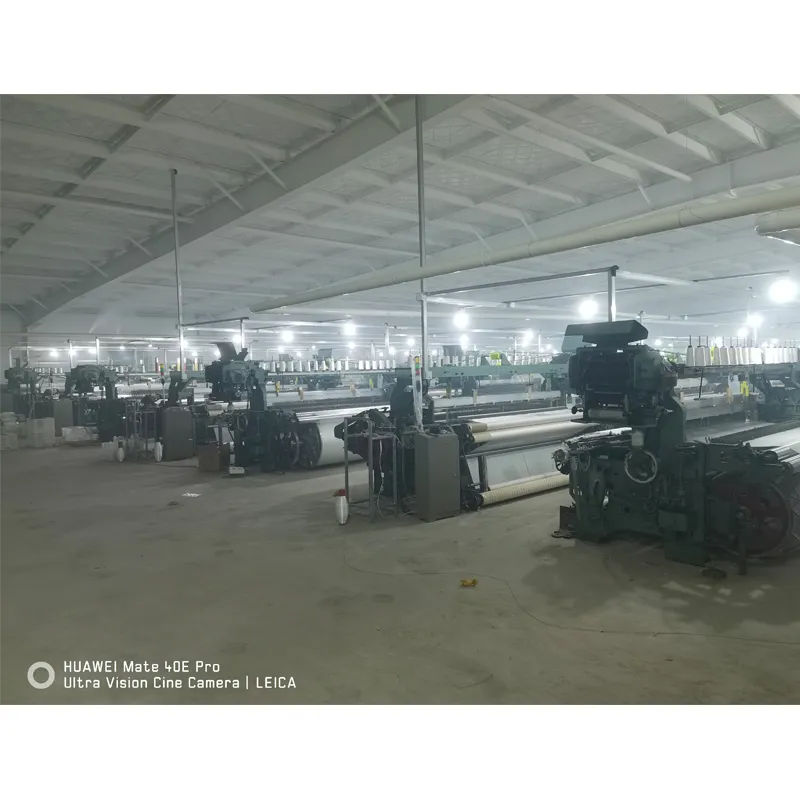
The technical advantages of investing in state-of-the-art fiberglass mesh weaving machines are multifaceted, directly contributing to operational efficiency and product superiority. Foremost among these is their unparalleled precision in weaving, which results in uniform mesh sizes and consistent fabric density, crucial for performance-critical applications. This high level of precision minimizes material waste and ensures compliance with stringent industry standards. The robust construction of these machines, often featuring heavy-duty frames and high-quality components, translates into exceptional durability and reliability, leading to extended operational lifespans and reduced downtime for maintenance. Modern industrial weaving machine models are also designed with energy efficiency in mind, incorporating advanced motor control systems and optimized mechanical designs that significantly lower power consumption compared to older equipment, thereby reducing operating costs and enhancing profitability. Furthermore, the capability for high-speed operation, facilitated by advanced weft insertion mechanisms like rapier systems, allows for substantial increases in production output, enabling manufacturers to meet aggressive market demands. This increased throughput, combined with minimal need for manual intervention due to advanced automation features, streamlines the production process, contributing to a lower cost per unit of finished product. The versatility to produce a wide range of fiberglass fabrics, from lightweight scrims to dense fireproof cloths, further solidifies the strategic advantage of these machines, providing manufacturers with the flexibility to adapt to evolving market needs and innovate new products. Choosing a reputable fiberglass machine manufacturer that offers robust support and customization options further amplifies these advantages, ensuring long-term operational success and a strong competitive position in the global industrial textile market.
Tailored Solutions & Proven Performance: Our Commitment
Recognizing that each manufacturing operation has unique requirements, we specialize in providing highly customized solutions for fiberglass mesh weaving machines. Our approach begins with a comprehensive consultation to understand your specific production goals, desired fabric specifications (e.g., mesh count, width, tensile strength), and operational constraints. Based on this in-depth analysis, we design and configure machines that are precisely tailored to your needs, whether it involves optimizing for ultra-fine filtration media or heavy-duty fire-resistant fabrics. This customization extends to selecting appropriate weft insertion systems, integrating specialized coating or heat-setting lines, and incorporating advanced automation features such as automatic defect detection or intelligent production monitoring. Our engineering team leverages decades of experience in spinning and weaving machines to develop bespoke solutions that maximize efficiency, minimize waste, and ensure the highest product quality, providing a significant competitive advantage over off-the-shelf equipment. This commitment to customization ensures that your investment in a fiberglass machine directly translates into optimized performance and a swift return on investment, reflecting our deep understanding of the unique challenges and opportunities within the industrial textile sector. Our collaboration doesn't end with machine delivery; we offer ongoing technical support and training to ensure your team can fully harness the capabilities of the tailored system, reinforcing our reputation as a trusted partner in industrial weaving technology.
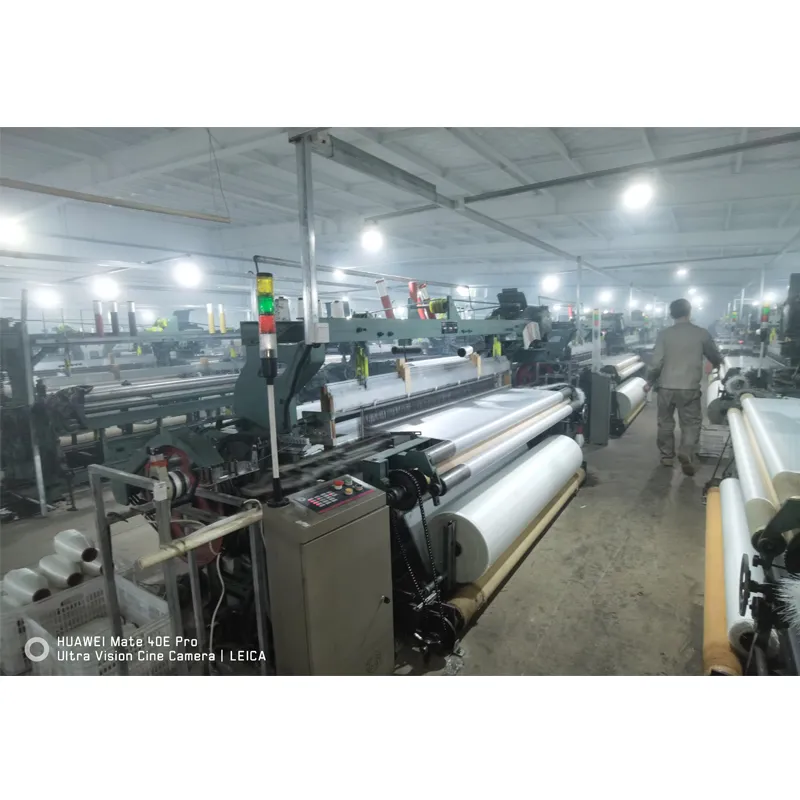
Our track record is built on delivering exceptional customer experiences and proven application cases where our fiberglass mesh weaving machines have demonstrably enhanced client operations. For instance, a major construction material manufacturer faced challenges with inconsistent mesh quality and high energy consumption from their legacy weaving equipment. By implementing our customized high-speed rapier looms, they achieved a 30% increase in production efficiency and a 15% reduction in energy costs, while simultaneously improving mesh uniformity by 20%, leading to a higher quality end product that met stringent European building codes. Another client in the filtration industry required machines capable of weaving ultra-fine fiberglass media for specialized air filters. Our engineered solution provided the necessary precision and control, resulting in a filter fabric with superior filtration efficiency and extended lifespan, opening new market segments for our client. These success stories are underpinned by our comprehensive service commitment, which includes meticulous installation and commissioning, extensive operator training, and readily available technical support and spare parts. Our machines comply with international standards such as ISO and CE certifications, validating their quality and safety. We are committed to transparency in our delivery cycles, providing clear timelines from order to installation, and offering comprehensive warranty packages to protect your investment. This holistic approach, from initial consultation and customized design to reliable after-sales support, ensures our clients experience unparalleled trustworthiness and continued operational excellence, demonstrating why our fiberglass machine price reflects genuine long-term value and superior performance in the global market.
Frequently Asked Questions (FAQs) About Fiberglass Weaving Machines
This section addresses common inquiries regarding fiberglass mesh weaving machines, their capabilities, and operational considerations, aiming to provide clarity for prospective buyers and technical teams.
-
Q: What types of fiberglass yarn can your fiberglass mesh weaving machines process?
A: Our machines are designed to handle a wide range of fiberglass yarn types, including E-glass, C-glass, and AR-glass (Alkali Resistant glass fiber), with capabilities to process various denier counts suitable for different mesh applications. We ensure optimal settings for each type to prevent fiber damage and maintain weave integrity, which is crucial for applications requiring specific tensile strengths or chemical resistances. -
Q: What is the typical lead time for a custom industrial weaving machine order?
A: The delivery cycle for our customized fiberglass mesh weaving machines typically ranges from 12 to 20 weeks, depending on the machine's complexity, customization level, and current production schedule. We provide a detailed project timeline upon order confirmation, including manufacturing, quality assurance, and shipping estimates, ensuring transparency and timely delivery for your production needs. -
Q: What kind of after-sales support and warranty do you offer for your fiberglass machine?
A: We offer comprehensive after-sales support, including remote technical assistance, on-site installation and commissioning services, and operator training programs. Our machines come with a standard one-year warranty covering manufacturing defects and critical components, with options for extended warranty plans. We also ensure timely availability of spare parts to minimize any potential downtime. Our commitment to client success extends far beyond the initial purchase, aiming to build lasting partnerships through reliable service. -
Q: How do your high speed weaving machines contribute to energy efficiency?
A: Our fiberglass mesh weaving machines are engineered with advanced servo motors and optimized mechanical designs that significantly reduce energy consumption compared to traditional looms. Features like intelligent power management systems, efficient lubrication, and reduced friction components ensure that operational costs are minimized while maintaining high production speeds. This focus on energy efficiency not only lowers your utility bills but also aligns with global sustainability goals.
References
- Technical Textile Market: Global Industry Trends, Share, Size, Growth, Opportunity and Forecast 2023-2028.
- Properties and Applications of Glass Fiber Reinforced Polymer (GFRP) Composites in Construction.
- Advanced Weaving Technologies for High-Performance Industrial Fabrics.
- Fire Resistance Performance of Composite Materials in Building Applications.
- Energy Efficiency in Textile Manufacturing: A Comprehensive Review.

Pervious








